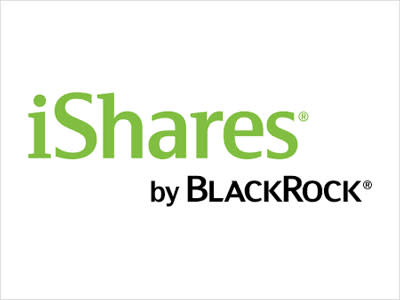BlackRock, a pioneer in index investing, has a great record of managing index funds
This fund invests in a range of emerging market government bonds
It’s a simple, low-cost way to track the J.P. Morgan Emerging Markets Bond Index
This fund doesn’t feature on our Wealth Shortlist of funds chosen by our analysts for their long-term performance potential
How it fits in a portfolio
The iShares Emerging Markets Government Bond Index fund invests in a range of bonds issued by governments in emerging markets. These bonds can be higher risk, as emerging market economies and governments have the potential to be more sensitive to economic and political conditions than their developed market peers. This means the chances of an emerging market government defaulting on its bonds is typically higher compared to a developed market government. As a result, they usually offer a higher yield to compensate investors for this added risk.
An index tracker fund is one of the simplest and low-cost ways to invest. This fund could help diversify an investment portfolio focused on other assets, such as shares, or other types of bonds. Although, funds that just invest in emerging market bonds are a higher risk option, so investors should expect volatility and it should only make up a small part of a well-diversified investment portfolio.
While we view the fund as a useful way to gain passive exposure to emerging market bonds, it’s not on the Wealth Shortlist as it already features funds that offer exposure to this part of the market and are run by managers we rate highly.
Manager
Each index fund at BlackRock has a primary and secondary manager, though in practice the broader team helps to manage each fund. John Hutson is Head of the EMEA Fixed Income Portfolio Management team and the primary manager of this fund. Hutson has been at BlackRock for 14 years and has 24 years’ experience.
BlackRock also has other teams that trade shares and bonds based across the world. The teams function in different time zones, which means they have access to timely information, and can provide input on market trends and corporate actions. Their global approach helps drive efficient management of their funds, while providing simple and effective tracking options for investors.
Process
This fund aims to track the performance of the J.P. Morgan Emerging Markets Bond Index Global Diversified Custom Defaults. It invests in almost every bond in the index and is currently made up of around 1,000 government bonds. This is known as partial replication, which could help the fund track the benchmark closely without incurring the cost of holding every bond.
The fund invests in bonds issued in US dollars by governments in emerging markets, such as Saudia Arabia, Mexico and Indonesia. Emerging markets are higher risk as they’re usually more sensitive to economic and political conditions.
The index includes bonds with a credit rating below investment grade and some that are unrated (bonds without a credit rating). These bonds are less liquid, meaning they can be more difficult to buy and sell, especially during challenging market conditions or shocks. At the end of May, the fund had around 49% invested in investment grade bonds and 51% in bonds rated below investment grade.
The team uses currency hedging which means overseas currency bonds are converted back to sterling. The prices and income of global bonds can go up and down with foreign currency movements, adding volatility for UK investors. By hedging, investors could experience less extreme price movements over time, which could help smooth potential returns. Although, currency hedging can be expensive and is done through derivatives which adds risk.
The fund can lend some of its investments to others in exchange for a fee in a process known as stock lending. This offsets some of the costs involved with running the fund. Since BlackRock’s lending program started in 1981, only three borrowers with active loans have defaulted. In each case, BlackRock was able to repurchase every security out on loan with collateral on hand and without any losses to their clients. Even so, stock lending adds risk.
Please note as this is an offshore fund you are not normally entitled to compensation through the UK Financial Services Compensation Scheme.
Culture
BlackRock is currently the largest asset manager in the world, running around $11.6trn of assets globally as of March 2025. The company was founded by eight partners including current CEO Larry Fink and is known for both active and passive strategies. Employees at BlackRock are encouraged to hold shares in the company so that they are engaged with helping the company perform well and grow. The iShares brand represents BlackRock's family of index tracking and exchange-traded funds.
As the world's largest asset manager, and with lots of resource and knowledge under its belt, BlackRock benefits from unique access to the marketplace, which can help reduce trading costs. BlackRock is also a pioneer in the passive investment space and has a track record of innovation in this part of the investment market.
The team running this fund also works closely with various fixed income and risk departments across the business. We believe this adds good support and challenge on how to run the fund effectively.
ESG Integration
BlackRock was an early signatory to the Principles for Responsible Investment (PRI) and has offered Environmental, Social and Governance (ESG)-focused funds for several years, including through its iShares range of passive products. But it only made a company-wide commitment to ESG in January 2020. Following that announcement, the company promised to expand its range of ESG-focused ETFs, screen some thermal coal companies out from its actively managed funds and require all fund managers to consider ESG risks.
BlackRock’s Investment Stewardship Team aims to vote at 100% of meetings where it has the authority to do so. The Investment Stewardship team engages with companies, in conjunction with fund managers, and the results of proxy votes can be found on the BlackRock website’s ‘proxy voting search’ function.
BlackRock has courted controversy in recent years for failing to put its significant weight behind shareholder resolutions aimed at tackling climate change. It responded by committing to be more transparent on its voting activity and providing rationales for key votes.
BlackRock raised further concerns in 2022 when it indicated it might support fewer shareholder proposals based on environmental and social issues in the future. But its support for shareholder resolutions has fallen dramatically, from 40% in 2021 to just 4% in 2024. BlackRock argues that many of the resolutions were overreaching, lacked economic merit or didn’t promote long-term shareholder value, but this reasoning has been met with some scepticism.
In 2024, BlackRock announced that its US arm would step back from the Climate Action 100+ collective engagement initiative, citing legal considerations, although it suggested its international arm would remain a member.
iShares Emerging Markets Government Bond Index is a passive fund designed to track an index that doesn’t specifically integrate ESG analysis or exclude bonds issued by companies in certain industries like tobacco or weapons.
Cost
The fund has an ongoing annual fund charge of 0.20%. Our platform charge of up to 0.45% per annum also applies, except in the HL Junior ISA, where no platform charge applies.
Performance
Since launch in May 2018, the fund has tracked its benchmark well. The management tools used by the team have helped to keep performance close to the index.
Bond markets have been volatile over the past 12 months. During this time, the fund has risen 7.94%*. Remember, past performance isn’t a guide to the future.
Many emerging markets have been lowering interest rates over the last year as inflation has fallen. This aligns with the general trends seen in developed markets. Although central banks remain cautious due to uncertainties around trade and the impact Trump’s tariffs could have on the future prospects of emerging nations.
There have been some exceptions to this rate cutting trend. Brazil has been increasing interest rates since September 2024 as inflation has been rising and reached the highest it’s been in two years.
Also, Turkey unexpectedly increased interest rates in April despite inflation decreasing throughout the year and following three rate cuts in a row. This was partly driven by the risk that global trade tensions could cause inflation to rise again.
The yield for the iShares Emerging Markets Government Bond Index fund was 6.86% as of the end of May 2025. Yields aren’t guaranteed and shouldn’t be considered a reliable indicator of future income.
Given BlackRock's size, experience and expertise running index tracker funds, we expect the fund to continue to track the index well in future, though there are no guarantees.
Annual percentage growth
May 20 – May 21 | May 21 – May 22 | May 22 – May 23 | May 23 – May 24 | May 24 – May 25 | |
|---|---|---|---|---|---|
iShares Emerging Markets Government Bond Index | 9.62% | -15.16% | -3.47% | 10.11% | 7.94% |


